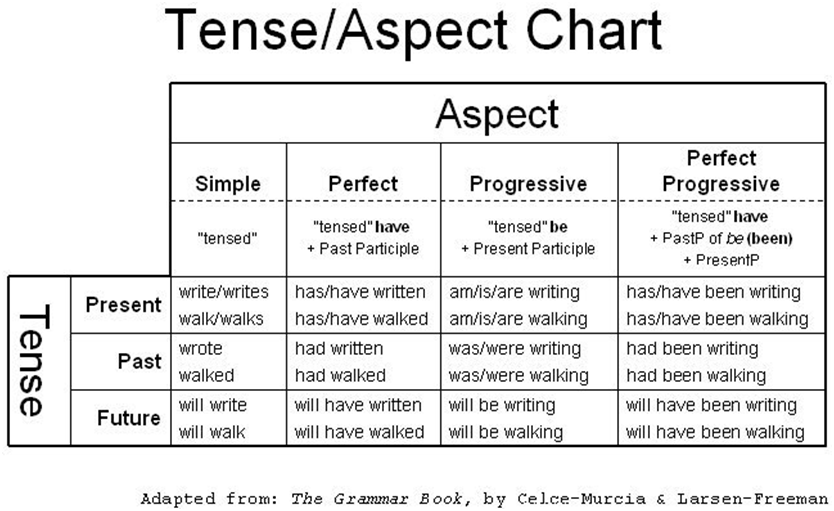Why is correct ‘Speed’ important in Spoken English?
What is the relation between 'speed' and spoken English? Isn't speed supposed to refer to race cars? Speaking English fluently not only involves correct usage of grammar and vocabulary, but also correct speed. While delivering words in spoken English, it is very important to speak English at a controlled speed, rather speaking fast. Any fluent conversation involves a two way communication between the speaker and listener.

A communication ends when the listener has understood the speaker's words and intentions. Correct speed in English helps to show the speaker's confidence and grasp over the language. Language speed should be consistent and not varied. Variation in speed will confuse the listener and also does not sound pleasing to the ears. It disturbs the concentration of the listener and there may be chances of miscommunication.

Here are 10 reasons why 'speed' is important in Spoken English:
1. Speaking English fluently in a correct speed improves understanding among the audience and helps to get the message across.
2. Fast delivery of words implies nervousness and low self-confidence. It can also suggest over-confidence in your subject matter. When you are speaking at an aggressive speed, you come across as a novice speaker with limited language command or an overconfident one.
3. Speaking English in a controlled manner showcases confidence and strong grasp over the language. The listener is able to understand clearly and is left with no misunderstanding.
4. When a listener does not understand what the speaker says, he/she interrupts with 'Excuse Me'. Too much interruption can lead to embarrassing situations. If you are addressing a large audience, it can lead to public humiliation also.
5. Speaking English with controlled speed enables the speaker to get his message across with minimal disturbance as possible. The message gets delivered faster and with better comprehension.
6. It is important to speak words with a small pause in between. This helps in better understanding and gives the speaker an opportunity to gather thoughts. However, care should be taken to not give too long a pause or it will send a wrong message to the audience.
7. Speaking English in a controlled manner helps to improve self-control. Words pour out of our mouth, when we have abundance of thoughts. Controlled fluent English speaking helps us to maintain patience while speaking, which leads to better self-discipline.
8. Speaking English with the correct speed leads to improvement in overall quality of life. Your friends, family, coworkers, stakeholders are able to understand you clearly and thus, will lead to more inclusive communication.
9. You will be well known in your community as someone with good communication skills. Isn't it great to be popular because of your fluent English speaking skills?
10. You can improve your social life with controlled English speed. People will want to have English conversation with you because of your strong and fluent command over the English language.

Strong English vocabulary skills are needed for speaking English fluently in a controlled manner. You can improve English vocabulary only through active reading. For taking your spoken English to a global standard, you can take help of English movies and music. Listen to the dialogues and the speed with which the actors deliver their lines. You will get a general idea about the correct speed which can be used in any situation. You can learn to speak English fluently with the help of an online English tutor or practice with the help of a friend. Be fluent without any limits!
About eAgeTutor:
eAgeTutor.com is a premier online English learning institute. eAge's world class faculty and ace communication experts, from around the globe, help you to improve in an all-round manner. Assignments and tasks based well researched content developed by subject matter and industry experts can certainly fetch the most desired results for improving spoken English skills. In this age of effective and advance communication technology, online spoken English programs are the most effective and convenient way to learn English.
For further information on our online English speaking courses or to experience the wonders of the virtual classroom, fix a demonstration session with our tutor.
- By Monika Agarwal
Related Topics:
1. How to Learn English Real Fast?
2. How to Talk About Your Opinions?
3. How to improve English Pronunciation and English Speaking?
Understanding the Tenses in English – II
In our last blog on tenses, we explained why tenses form a vitally important part of the English grammar. Tenses play a key role in written, spoken, as well as English reading. It depends on the various tenses – past, present, or future – to understand the period of time being referred to. A simple sentence like 'I buy mangoes' tells you about the action of buying mangoes, but tells you nothing about whether the action has been completed, is being done or will occur in the future. To lend it some meaning, we need to apply a tense to it. It should be either 'I have bought mangoes' (past tense), 'I am buying mangoes' (present tense) or 'I will buy mangoes' (future tense).
You get the point, right? Just as a perfect sentence needs to have a subject and action to be complete, it also has to have a clear cut tense. A person's ability to use the right form of tense at the right moment speaks a lot about his English prowess.
As mentioned in the earlier blog, tenses are broadly categorized into three – past, present and future. These are further categorized into:
• Present perfect
• Past perfect
• Past progressive
• Past perfect progressive
• Present perfect progressive
We have explained in detail the Present and perfect tense, Past and past perfect tense in our last blog (link of the last blog). Let us proceed with the other tenses.
• Past Progressive: The first part of the tense makes it clear that it is an action/ incident that has happened in the past, however the 'progressive' part implies to the action that was in the continual at the time of the action/ incident. This example should make it amply clear - "I was reading the newspaper this morning." This sentence makes it clear that the incident happened in the morning, but the word 'reading' implies that action was in a continual. 'He was playing all afternoon' is another perfect example of understanding what past progressive tense means.
• Past perfect progressive: This tense is defined by a tense that was being done in the past, but was interrupted. A perfect example of this can be – 'Satish was studying in the morning, only to be disturbed by Hari.' In this sentence, it is clear that Satish was disturbed by Hari – which is a past tense, but the fact that he 'was studying in the morning' – makes it a past progressive tense. After combing the two aspects, we get a Past perfect progressive tense.
• Present perfect progressive: This is very simple to understand. 'He has been studying all day' – this is a perfect example of this tense. Present perfect tense pertains to an action that continues into the present, and does not clearly mention whether it has been accomplished or not. Another example is 'She has been trying hard to make things better for her family.'
Isn't it an easy way to learn about tenses? If you are struggling with the question, 'How can I learn English?' The answer is simple – join a professional online English class like eAgeTutor and get valuable spoken English tips!
Understanding the Tenses in English
Tenses form an integral part of the English grammar. It is with tenses that you can get an idea of the time frame of the sentence. While tenses flow naturally in a sentence, many times you need to think twice about what tense to use where. Even people with a good command over the language are sometimes left fishing while using tenses fittingly. The basic tenses – past, present, future – are easy to learn, practice, and use. The problem arises when the other five tenses come into the picture:
• Present perfect
• Past perfect
• Past progressive
• Present perfect progressive
• Past perfect progressive
These five tenses are extensions of the basic tenses and totally rule the sentence formation. Using the right tense according to the situation is vital as it defines whether you can speak fluent English or not. Remember, fluent English does not mean the speed at which you can speak English, it pertains to how well you can speak English – using the correct words and flawless as per all the grammar rules, and that includes tenses as well.
When you are reading a text, you totally depend on the tense used to judge the 'time' in the text. Similarly, when you are speaking or writing in English, you need to use the tenses fittingly to give your audience/ reader a clear idea of the time period you are referring to.
Now that you have understood the essentiality of tenses in the English language, let us learn a few tips that will give you the judgment of using the tenses suitably. Let us first understand the Present tense, Present Perfect, Past tense and Past Perfect:
• Present and perfect tense: There is a slight difference in these two sentences. Present tense refers to an action/ incident that is taking place in present time. While present perfect refers to an action/ incident that has just been completed in the present time. A perfect example of the present tense will be – I am buying the sweets. On the other hand, 'I have bought the sweets' is a good example of Present perfect.
• Past and past perfect tense: Past tense pertains to an incident that has been completed – 'I bought the sweets yesterday.' Past perfect, on the other hand, refers to a past action that was completed before another past action. This example should explain it well – I invited your brother just before the party started. Here there are two past incidences, where the former was completed before the other.
Before progressing to the other tenses, you should first practice and master these basic ones. For the remaining tenses, watch this space for our upcoming blogs!
If you feel that understanding tenses is a mean task, it is better that you enroll in an online language course. The reason why online courses like eAgeTutor's Spoken English Programs are a better option is that they give you the flexibility and freedom to learn as per your schedule. If you wish to improve English skills, it is best that you study English online.
The Quintessential Manners in English Speaking
English, originally, is a language of the British and they are the ones who introduced India to the Queen's language. Even though, nowadays Indians speak varieties of English – UK accent, American Accent, Australian accent or our very own version of 'Hinglish', an amalgamation of Hindi and English – the fact remains that the Indians have the Britishers to thank for opening a world of opportunities for us by giving us our first brush with English.
English is a vast language, with over 10 lac odd words that make up the whole vocabulary. Each word denotes a unique thing, and some words have over a hundred different meanings! There are a number of words to denote anger, happiness, sadness, and other such emotions. Then there are words that are used for facilitating communication. Then there are words to denote the period of time, place, or reasons. And then, there are words and phrases that speak a lot about the manners of the speaker.
Britishers lay a lot of stress on manners and etiquettes. If you have ever seen a British person in real or in the movies, you will know about what we are talking. From wearing a freshly ironed suit, wearing the right tie to having the perfect hat, a British man always turns out at his best. The same applies to their women as well.
Although, in these times, certainly no Britisher dresses up like the bygone era, the manners and etiquettes have stuck true. Saying a simple 'thank you' to a bus driver does not take much of an effort, but certainly makes the driver's day.
Learn manners too, not just English!
When you are in the primary stages of learning spoken English, make sure that you also pick up the manners. There are words in English that represent manners and lend some politeness to the sentences. Learning and using these words in your speech will make you come across as a warm and courteous person.
• Please: When you need someone to do something for you, you say 'please'. For example: you are shopping for a dress and would like the shop attendant to give a specific dress to you, this is what you say, "could you please pass that green dress to me". Another word you can use in such conditions is 'kindly'. "Kindly pass that green dress to me."
• Thank you: After the shop attendant gives you the dress you asked for, you reply with a 'Thank you'. When a young boy helps you carry your heavy bags, you reply with a "Thank you. That was very kind of you." One uses thank you in lieu of a helpful act. It is also an act of kindness to thank people who provide services to you; like your milkman, paper delivery boy or even a cab driver.
• Sorry: Sorry is used in two situations: when you have done something wrong or hurtful, or when you hear of someone's loss. When you accidently spill some milk on the floor, which someone else has to clean, you say, "I am sorry for this mess." On the other hand, when you hear that your friend's uncle passed away, you say, "I am sorry to hear about your loss."
• Excuse me: When walking in a crowded aisle, you need someone to move and make space for you; you say 'Excuse me'. When you need to disturb a colleague, to ask him a question, you say, "Excuse me". This phrase is used to get people's attention so that they make way, or time for you.
If you are trying to improve English speaking skills, it is always a good idea to work on your manners as well. Spoken English, accompanied by good manners will always make you stand out!




